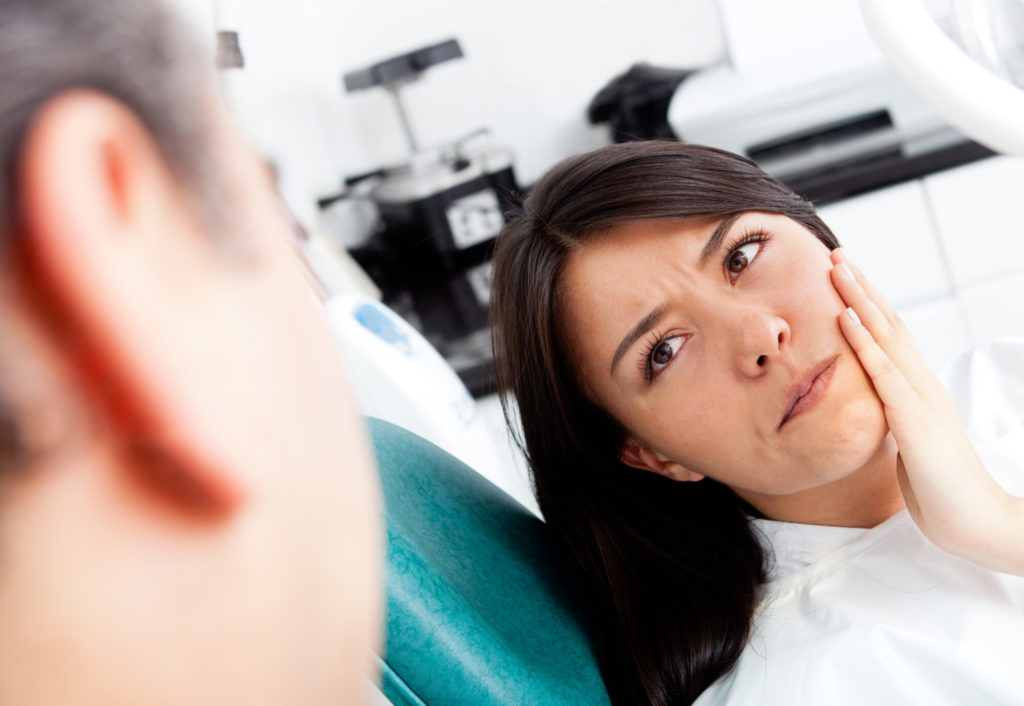Foods to Avoid During Your Oral Surgery Recovery
Do you have oral surgery scheduled soon? If so, you might be worried about the recovery period. How are you going to eat when you’re recovering?
Eating after oral surgery can be complicated, but you’re not as limited as you may think. We’re here to talk all about what patients can generally eat during their oral surgery recovery period. Read on to learn more.
What Not to Eat
Right after your oral surgery, your oral surgeon or the surgical assistants will likely advise you on what you can and cannot eat while they’re going over your aftercare instructions.
Having a list of foods that you can’t eat may seem frustrating and restrictive, but recovery from most types of oral surgery is quick. Depending on the type of surgery you underwent, you may only have a day or two before you can start returning (slowly) to your normal diet.
Always ask your oral surgeon how long you should be following a “recovery diet” just to be sure. Even if you “feel” okay before your initial recovery is over, it’s better to be safe than sorry.
Here are a few types of foods that are likely to be on your “do not eat” list right after your surgery.
Hard Foods
Hard foods should definitely be avoided right after your surgery. Anything that would be too crunchy could be sharp and damage your sensitive gums. Even if a food doesn’t seem too hard, it’s best to be safe and opt for softer alternatives.
So what do hard foods look like? Common examples of “hard” foods you may have in your kitchen or pantry already include things like:
- Chips
- Crackers
- Pretzels
- Crispy cookies
- Popcorn
While popcorn itself isn’t “hard,” any unpopped kernels or even the thin shells of kernels can cause damage. Avoid these foods for a few days to protect your gums and teeth from damage!
Chewy Foods
Chewy foods will also be problematic when you’re recovering from your oral surgery. You want to keep chewing to a minimum. EVen though many of these foods are soft or nutritious, they can still cause damage.
Common chewy foods you may already have at home include:
- Fibrous fruits and vegetables
- Bread or bagels
- Dried fruit
- Jerky
- Fibrous meats
- Chewy candy
A few days without these foods are more than worthwhile in exchange for happy healing.
Spicy Foods
After your oral surgery, spicy foods can cause discomfort. Spicy food lovers will have to wait until their gums have healed a bit before they can indulge.
Avoid things like:
- Hot sauce
- Spicy salsa
- Spicy curries
- Hot peppers
You can start introducing spice back into your meals soon enough.
Very Hot Foods
Very hot foods should be avoided immediately after your surgery and, at least, until the local anesthetic has worn off completely.
When your gums are still numb, you can’t tell how hot a food or drink is. Because of this, you could burn yourself without realizing it. Your gums will also be more sensitive to heat right after the surgery.
Opt for lukewarm or cool foods and drinks during your initial healing period.
Acidic Foods
Acidic foods aren’t as problematic as other foods on the list, but it’s still best to avoid them. Acidic foods are also bad for your enamel in general.
Food the most part, acidic foods will be citrus fruits and their juices. If possible, wait until your initial healing period is over for that glass of orange juice!
What to Eat Instead
So what can you eat during your initial healing period from oral surgery? Plenty of things! You have to be careful, but you can still eat tasty meals while recovering.
Here is a brief list of foods that are appropriate while you heal.
Liquids
Liquids are great for your recovery period (as long as they aren’t hot or acidic).
Drinkable soups will make you feel great. Consider blending your favorite vegetables together to make them into a delicious and nutritious soup. You can still eat fibrous vegetables as long as they’re blended.
Smoothies will also be helpful during this time.
Soft Foods
Soft foods will be your best friend when you’re recovering from your oral surgery. Avoid anything with small pieces that could get into your wound (like rice, for example), but otherwise, you have a lot of options.
Great examples of soft foods to add to your list include:
- Mashed potatoes
- Oatmeal
- Greek yogurt
- Refried beans
- Applesauce
- Soft scrambled eggs
Ask your oral surgeon if you’re able to eat soft pasta. This is a good option for some people, but not everyone.
Things to Keep in Mind
Right after your surgery, if you’ve had a tooth extraction, you’re going to be at risk for something called “dry socket.” This means that the clot dislodges and exposes nerves and bone. It’s incredibly painful.
To avoid a dry socket, you should refrain from any type of “sucking” motion. This includes using a straw. While you should be drinking plenty of water and you can drink liquid meals, do it without a straw.
You also need to be eating nutritious foods to give your body the best chance of healing. Make sure you’re still eating fruits, vegetables, and protein. Protein smoothies are a great way to get nutrition while you’re unable to eat solid food.
Be Careful Eating During Your Oral Surgery Recovery
Your oral surgery recovery will be over before you know it. Make sure that you’re nourishing your body and protecting your gums by avoiding problematic foods and exchanging them for softer and healthier ones while you heal.
Have a safe and happy recovery!
At the Santa Monica Center for Oral Surgery & Dental Implants, our team of experienced oral surgeons are here to help you with all of your oral surgery needs. If you’re in need of oral surgery, book your exam today.



